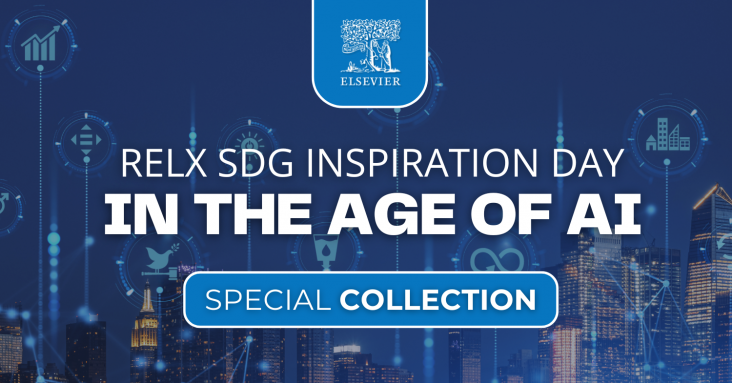Conserve and sustainably use the oceans, seas and marine resources for sustainable development

This year’s RELX SDG Inspiration Day will bring together global AI leaders, corporate representatives, investors, government, and NGOs to explore issues, gain practical insights and be inspired to take action in support of the Global Goals. Elsevier is proud to share this special collection of articles and chapters in celebration of this event.

The International Day for Biodiversity (IDB) is celebrated every year on 22 May to raise awareness of the importance and value of biodiversity and to increase understanding of biodiversity issues. The theme of IDB 2024, “Be part of the Plan”, is a call to action for all stakeholders to halt and reverse the loss of biodiversity by supporting the implementation of the Kunming-Montreal Global Biodiversity Framework, or the “The Biodiversity Plan”. To mark International Day for Biodiversity, Elsevier has curated a special collection of journal articles and book chapters exploring .
This article supports SDGs 13, 15 and SDG 11 by exploring the utilization of soil microbe based desertification management practices and highlighting emerging technologies in the field. It discusses the policy implications and strategies that can support sustainable land use practices.
The paper demonstrates that coastal ecosystem restoration leads to increased abundance and diversity of animals, comparable to natural reference sites, underscoring its importance in mitigating biodiversity loss and environmental degradation.
Amphibian rewilding initiatives may provide early indications of ecological health and better contribute to conservation goals, by simultaneously protecting highly endangered species, and promoting ecological stability in these species ecosystems. Authors recommend the rapid (re)introduction of this “forgotten” taxon via the guidelines of trophic rewilding.
The study forecasts AI-based innovation's impact on SDGs in 22 countries from 2022 to 2030 using System Dynamics Modeling. In most of the 22 countries studied, AI-based innovation positively affects SDGs 1, 3, and 5. For half of the countries studied, AI-based innovation positively influences SDGs 2, 4, 6–8, 11, 13, and 16–17. AI-based innovation does not positively influence SDGs 10, 12, 14–15 for most countries studied.
This chapter aligns with Goals 9 and 14 by studying the risk-based assessment methods associated with health, safety, and environmental protection of engineering structures and infrastructure, discussing how to prevent and mitigate oil and gas leaks, fires, explosions, and more.
Dynamic Aquaria (Fourth Edition) - Chapter 13: Community structure: Biodiversity in model ecosystems
Dynamic Aquaria, Fourth Edition: Building and Restoring Ecosystems and the Biosphere, 2024, pp 167-180
This chapter advances the UN SDG goals 13 and 14 by reviewing how to calculate species count in a high-veracity ecosystem model for use in climate resilience and aquatic conservation settings.
This paper evaluates the negative impacts of abandoned, lost or otherwise discarded fishing gear (ALDFG) on Indian biodiversity and highlights an urgent necessity to continue building management programs and develop government policies to protect the aquatic environment from it.

